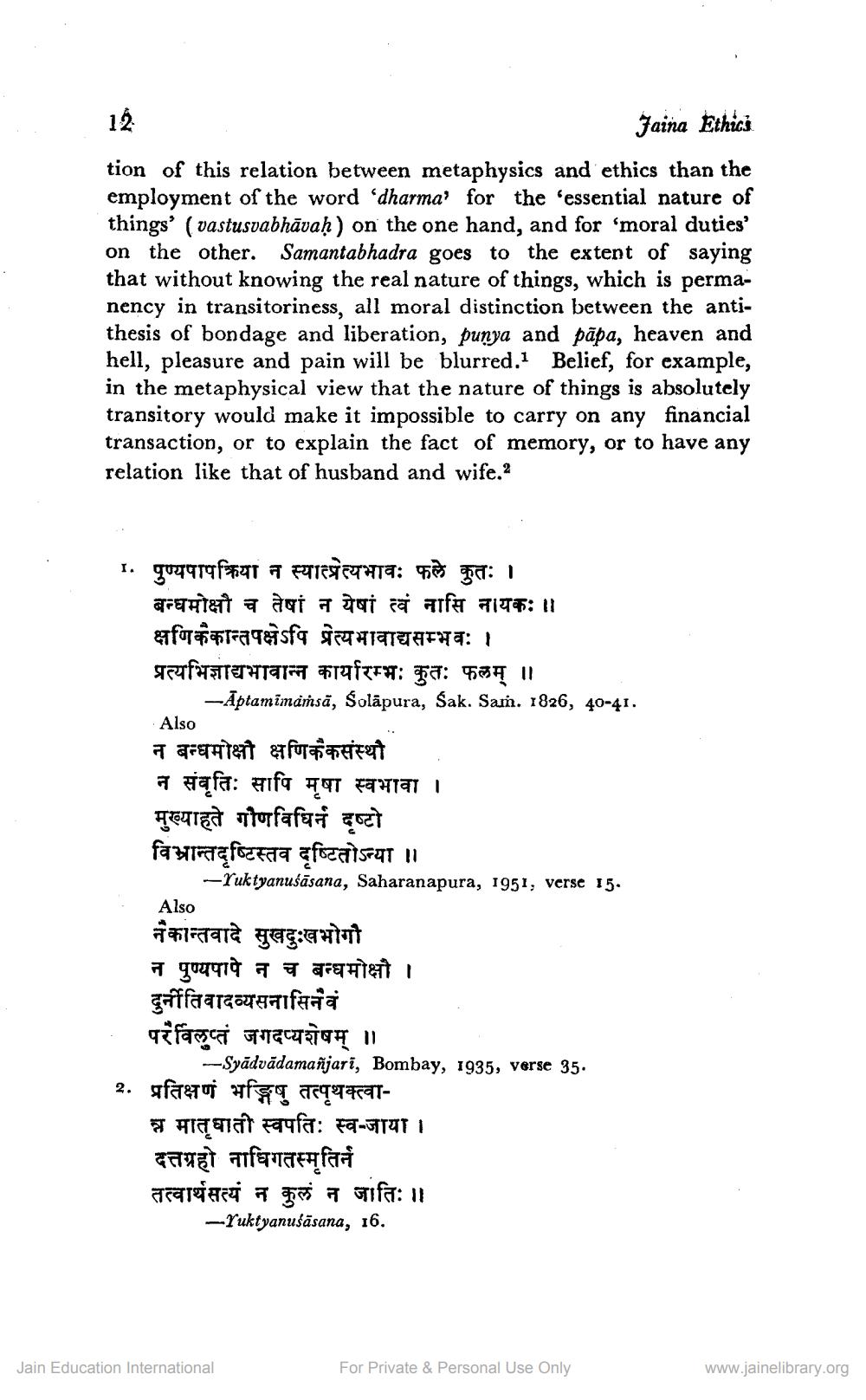________________
Jaina Ethics
tion of this relation between metaphysics and ethics than the employment of the word 'dharma' for the 'essential nature of things' (vastusvabhāvah) on the one hand, and for 'moral duties' on the other. Samantabhadra goes to the extent of saying that without knowing the real nature of things, which is permanency in transitoriness, all moral distinction between the antithesis of bondage and liberation, punya and pāpa, heaven and hell, pleasure and pain will be blurred.1 Belief, for example, in the metaphysical view that the nature of things is absolutely transitory would make it impossible to carry on any financial transaction, or to explain the fact of memory, or to have any relation like that of husband and wife.2
___I. पुण्यपापक्रिया न स्यात्प्रेत्यभावः फले कुतः ।
बन्धमोक्षौ च तेषां न येषां त्वं नासि नायकः ॥ क्षणिकैकान्तपक्षेऽपि प्रेत्यभावाद्यसम्भवः । प्रत्यभिज्ञाद्यभावान्न कार्यारम्भः कुतः फलम् ॥
-Aptamimāmsa, Solapura, Sak. Sain. 1826, 40-41. Also न बन्धमोक्षौ क्षणिकैकसंस्थौ न संवृतिः सापि मृषा स्वभावा । मुख्याहते गौणविधिर्न दृष्टो विभ्रान्तदृष्टिस्तव दृष्टितोऽन्या ॥
--Yuktyanuśāsana, Saharanapura, 1951, verse 15. Also नकान्तवादे सुखदुःखभोगी न पुण्यपापे न च बन्धमोक्षौ । दुर्नीतिवादव्यसनासिन परविलुप्तं जगदप्यशेषम् ॥
---Syādvādamañjari, Bombay, 1935, verse 35. 2. प्रतिक्षणं भङ्गिषु तत्पृथक्त्वा
न मातृधाती स्वपतिः स्व-जाया । दत्तग्रहो नाधिगतस्मृतिर्न तत्वार्थसत्यं न कुलं न जातिः ॥
-Tuktyanusāsana, 16.
Jain Education International
For Private & Personal Use Only
www.jainelibrary.org




